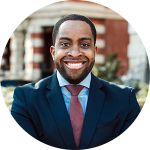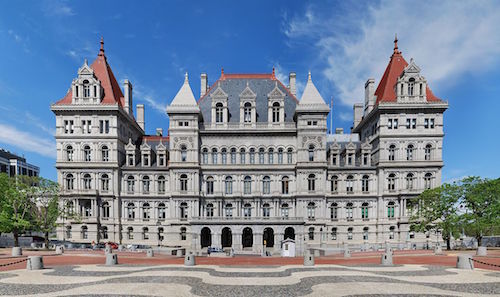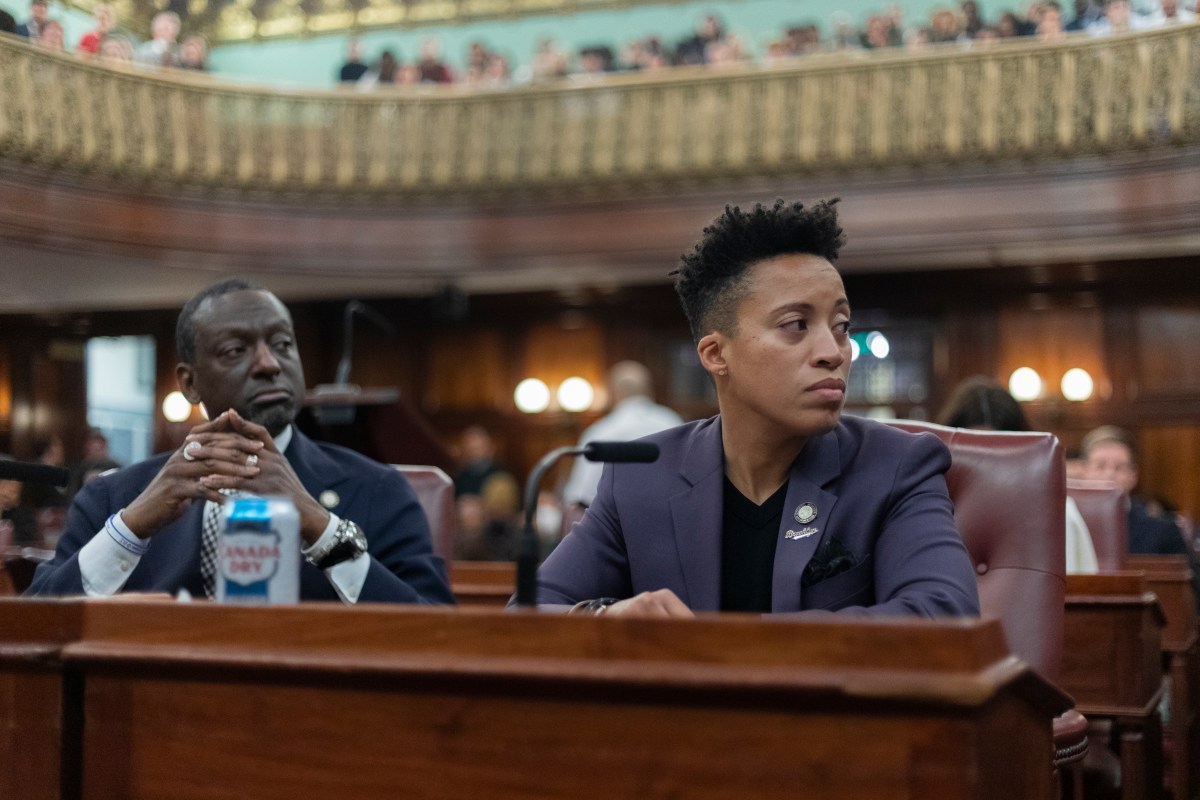State Sen. Zellnor Myrie (D-Brownsville, Crown Heights, East Flatbush, Gowanus, Park Slope, Prospect Heights, Prospect Lefferts Gardens, South Slope, Sunset Park), Chair of the Senate Elections Committee, today announced a hearing and rallied with colleagues and advocates to demand that public financing for New York State is included and properly funded in the state budget.
Currently all city elections are publicly financed with an $8-to-$1 public matching funds for all small dollars raised.

“We need big money out, and small donors in,” said Myrie. “New York has the highest contribution limits in the nation. In one election cycle, you can give more to my State Senate campaign than the mayor, a member of Congress, and a U.S. Senator combined. This is absurd and unacceptable. There is no way to strike at the root of our state’s problems and inequities without publicly financed elections.”
The Senate Majority’s budget resolution, passed last week, supports establishing a publicly financed small donor matching system. The Assembly similarly passed a budget resolution with language supporting a small donor matching system. As in years past, the Governor also included public financing of elections in the Executive budget. In order to make public financing a reality, however, the legislature and Governor must agree to include reform in the final FY 2020 state budget, due April 1.
Under a public financing system, qualifying candidates receive matching funds for every small-dollar donation up to limit. In the governor’s proposal, each dollar donated up to $175 would be matched 6-1. In addition, campaign contribution limits would be decreased so that a small minority of large contributions cannot dwarf those of average and low-income New Yorkers.
Currently, New York State’s contribution limits lag behind much of the country. An individual can give up to $69,700 to statewide candidates, $19,300 to state senate candidates, and $9,400 to assembly candidates.
In the 2018 election, according to the Brennan Center, the top 100 donors gave more than the bottom 137,000 donors combined, and small donations amounted to only 5 percent of total donations.


Among the Brooklyn lawmakers strong supporting the measure are State Senators Brian Kavanagh (D-Brooklyn Waterfront, Lower Manhattan) and Julia Salazar (D-Bushwick, Cypress Hills, Greenpoint, Williamsburg, parts Bedford-Stuyvesant, Brownsville, East New York).
“Our democracy will be stronger and more secure when we enact public financing of campaigns driven by New Yorkers making small matchable contributions rather than mega-donors,” said Kavanagh. “This will help make it possible for anyone of any economic background to run for office and represent their community without needing to rely on big checks. It will also ensure that the voices of ordinary New Yorkers who are actually affected by the decisions we make in government are heard in the electoral process. We’ve already taken huge steps this year to remove unnecessary obstacles to voting; now we should take similarly bold action to reform the system by which campaigns are paid for.”
Salazar said everyday New Yorkers deserve the opportunity to have a voice in their government.
“In last year’s elections, they made their preferences clear. We need to restore trust in state government by creating a publicly financed small donor system in this year’s budget. It’s time for my colleagues in the assembly and the governor to have the courage to actually make policy, not just signal support for measures that they will not see to the finish line,” she said.
Publicly financing state elections has also received the support of the New York Public Interest Research Group (NYPIRG) the longtime non-partisan state government watchdog organization.
“New York’s campaign finance system relies on a small number of big contributors to finance its elections, individuals and entities too often with business before the government. The result has allowed wealthy, powerful interests to have a huge say in policymaking, increased the risk of corruption, and turned off voters to participate in New York elections,” said Blair Horner of NYPIRG.
“A system of public financing turns that system on its head and shifts to an alternate system that allows candidates to rely on a large number of small donors to fund elections. NYPIRG urges action as part of the budget on this important issue,” he added.










